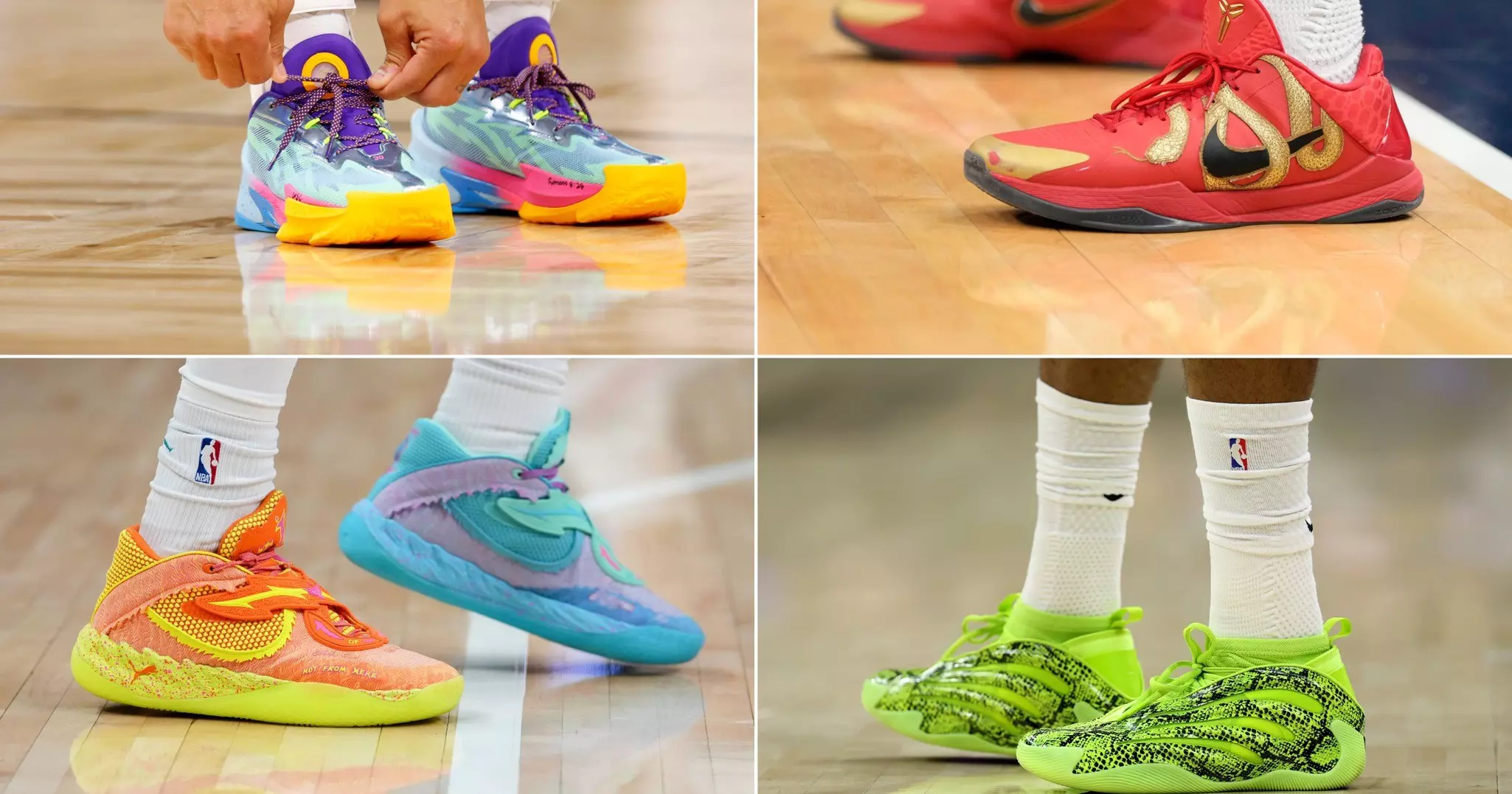Personal trauma and financial realities lead to the end of one Portland cobbler shop

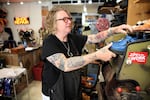
After 15 years, Julie Derrick will close JD’s Shoe Repair in Portland in July. June 10, 2024
Kristian Foden-Vencil / OPB
Julie Derrick polished a pair of bright blue platform loafers on a recent work day, party shoes that had seen better days and needed a refresh.
And that’s just how she feels these days.
Derrick opened JD’s Shoe Repair 15 years ago, driven by a love of repairing things. She was inspired by a store she used to pass on her bike ride to work every day.
“I was just like: ‘I want to do that,’” Derrick said.
She trained with a veteran cobbler who questioned her passion, saying people either learned the trade in prison or at the feet of a family member.
But Derrick believes that when something breaks, you fix it. You don’t just throw it away.
“Older styles of making shoes were designed to last 30 or 40 years,” she said. “That was their intention.”
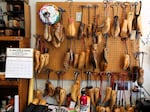
After 15 years in operation, JD’s Shoe Repair, seen here on June 10, 2024, will close in July because of a lack of sales and the loss of the owner’s son, Arthur Derrick Jones.
Kristian Foden-Vencil / OPB
Construction workers, for example, will buy well-made leather boots with strong, steel toe caps for protection. A pair can cost $300. But the soles can be completely removed and replaced every few years.
Derrick knows few people can afford or are accustomed to making that kind of financial commitment to footwear today. Instead of a $50 repair, they’re more likely to just buy new.
“It’s becoming more and more difficult to actually make a living,” Derrick said.
“I had such high hopes. But I couldn’t factor in the way our materials costs doubled and tripled with COVID. Or the way Portland would become such an expensive place to exist.”
Derrick plans to close JD’s Shoe Repair in July, once the backlog of work has been cleared.
Her decision is part of a trend; few cobblers are left in Portland, let alone in Oregon’s smaller cities and rural areas.
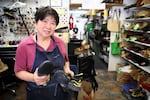
Chris Park at Hillsdale Shoe Repair, June 13, 2024. She’s seen business drop off but has found a niche repairing rock climbing shoes.
Kristian Foden-Vencil / OPB
Chris Park at Hillsdale Shoe Repair in Portland said business hasn’t picked up since the pandemic. She’s shortening her hours but believes she can keep the doors open with good workmanship and management.
“There are not many cobblers left,” Park said. “But people need us.”
She’s built a following among rock climbers who will pay good money to replace the grippy rubber on their soles.
Employee Andrew Link looked into buying JD’s from Derrick. But the financials didn’t make sense to him.
“(The store) is not succeeding now, and I don’t have any buffer to turn it around,” Link said.
Instead, he’s going to look for a job with security, better pay and maybe even benefits.
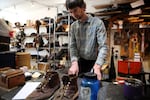
Cobbler Andrew Link, June 10, 2024, looked into buying JD’s Shoe Repair, but the financials didn’t make sense.
Kristian Foden-Vencil / OPB
Derrick’s reasons aren’t just financial. They’re personal too. Last year, her 19-year-old son, Arthur Derrick Jones, was killed.
He was upstairs, above the shop with friends, making noise at two in the morning. She knocked on the door and told the group she had to get some sleep.
“And that was the end of it,” Derrick said. “He left the house and never came back.”
The next morning a police officer appeared at the door to tell her that Arthur had been shot three blocks away. By whom and why remain under investigation.
Derrick said she just shut down after her son’s death.
“I felt like shoe repair died when Arthur died,” she said. ” But I’ve realized it did not die. It went dormant and went deep to heal. But I still want to do shoe repair. It’s what I do.”
But she’s not going to do it on Greeley Avenue anymore. Instead, she is moving to an old brick workshop in Baker City, four and a half hours east of Portland.
“I’m trying to do a thing with shoe repair that I’ve never heard of,” Derrick said. “I’m taking it remote. I’m going to have my workshop where I can afford it, and then do pick-up and drop-off events (in Portland.)”
Derrick wants to keep contact with her customer base, like roller skaters who need their old skates fixed, and restaurant servers who don’t want to throw away their favorite old pair of shoes.
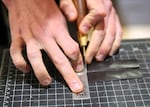
The skills of a cobbler aren’t in demand like they used to be. JD’s Shoe Repair, Portland, June 10, 2024
Kristian Foden-Vencil / OPB
link

